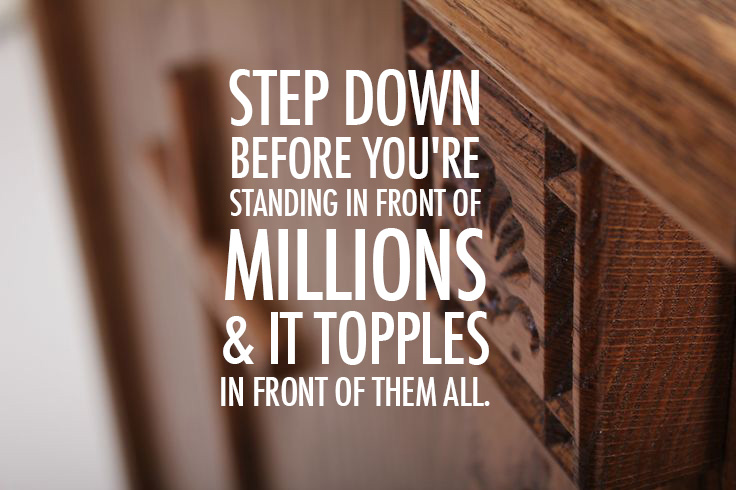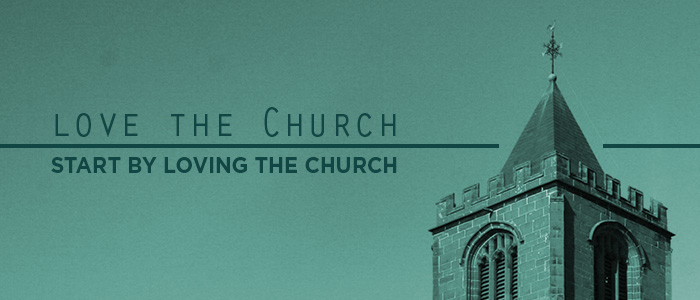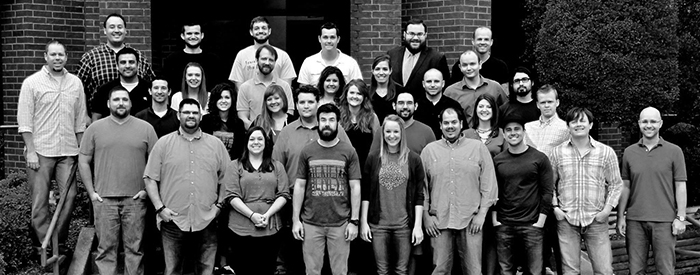Mark Driscoll is Not My Pastor, but I Have One(and other uncool things to say online)
I'm a church girl, capital C and lowercase c, cosmic Church and local church. I love the Church and I love my church. This is why I've stayed silent on most controversies within the church and Church. More of us need to really read I Corinthians 13 when Paul said Love doesn't delight in wrongdoing, and fewer of us need to skim over the cliche oft cross-stitched words. The other night my weary and hardworking pastor sat down with me at church. After talking about what God is doing in Europe through the church planting network he leads, we chatted for a few minutes about the work still ahead. There are so many who need to hear (and see) Christ. Nothing excites me more than endeavoring toward that. I'm a Church girl.
And then I asked him: Matt, talk to me for a few minutes about the most recent Driscoll dust up; as my pastor, I want to take your lead on this, happy and joyfully, knowing you take pastoring us seriously.
Nearly the first words out of his mouth were scripture:
I Corinthians 4:3-5 But with me it is a very small thing that I should be judged by you or by any human court. In fact, I do not even judge myself. For I am not aware of anything against myself, but I am not thereby acquitted. It is the Lord who judges me.
. . . . . . . . . . . . . . . . . . . .
This past weekend Driscoll issued an apology to those who call him pastor, friend, and family. It was not an "open letter" as many are asserting that it is. It was family business, not public business. But sure enough, I scrolled through twitter this morning and the finger-pointing had already begun. People are out for blood and nothing Driscoll does or says at this point will be enough. Follow every possible route this could go, and someone, somewhere, will still be out for blood.
I did not read his apology, because he does not owe me one, nor will I comment on it. First, because I trust Driscoll has elders around him who will stand before the Lord for their actions; second, because Driscoll himself will stand before the Lord for his actions.
What I will comment on is the lack of ecclesiological understanding within the Church today—which is ironic if you give it a few minutes of thought.
Everyone wants to BE the church and not GO to church these days. Everyone wants to LEAVE the church that doesn't make them FEEL like they're the church. Everyone wants to SAMPLE the church in various ways and means and SHRUG OFF the church when it presses in too uncomfortably. And everyone wants theorize and strategize and commentate on the Church and no one wants to sit and understand some pretty rudimentary things about the Church.
Namely that there are three things more of us should understand and practice:
Understanding and practicing biblical eldership.
Understanding and practicing biblical discipline within the local church.
Understanding and practicing the One Anothers of the New Testament.
. . . . . . . . . . . . . . . . . . . .
Less and less am I interested in what self-proclaimed journalists, bloggers, social media experts, and "church survivors" are saying about the Church because I don't see them actually practicing church.
I am not saying they're not. What I'm saying is I don't see them practicing it. They might be practicing it, but I can't see it with my own two eyes.
Beneath the layers of apologies and acts of repentance, beneath the acts of submission to authority or acts of subordination, beneath the unjust actions and the loving ones—there are real people living real lives in front of real people who see them with their own two eyes. As it was designed to be.
If you do not have a biblical understanding and practice of the three things I mentioned above, you absolutely do not have any authority to speak on things in other churches.
And if you do have an understanding and practice of them: trust God is on His throne, building His Kingdom, and the gates of hell won't prevail against it. He has won this and there are far better, greater, and more worthwhile things for your energy and biblical understanding of ecclesiology to be spent on. Namely, teaching those who don't know—which are many and gaining in number.
Go and be the church if you will. Be it to your neighbors and friends and pastors and the people you sit beside week after week after week. Do it well, do it heartily, as unto the Lord, not as unto the twittersphere or blogosphere or whatever platform you have toppling beneath you.
Moth and rust destroy those things, and if you think they won't you are more a fool than you realize. Step down before you're standing in front of millions and it topples in front of them all.
I anticipate plenty of pushback on this namely in these areas:
1. My use of the word biblical, which many progressives seem to think is manipulative and heavy-handed, and which, to me, simply means: the Bible says it and if we're children of God, we ought to abide by it.
2. A perceived victim-shaming for all those who've experience pain related to the church. I hope you'll understand if I'm saying anything here, I'm saying your greatest place of healing could come within good, healthy, biblical church order as God designed it.
3. An accusation that I'm protecting my pastor, leaders, church network, etc. To which I say, first, they don't need my protection. I am a lowly blogger. Moth and rust will destroy my words, and sooner rather than later. And second, to me covenant means mutual trust. I am in covenant with my church which means I trust them and they trust me. If you expect me to break that trust, then you do not understand two things: covenant and being in covenant in a place you trust. Call it protection or naivety if you wish. They will stand accountable for my soul someday and I don't envy that place at all.









